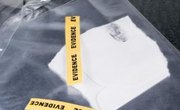Forensic psychologists are state-licensed psychologists who work in the criminal justice system, and they must hold Ph.D.s. This means you'll have to go to graduate school, write a dissertation and then seek licensure in your state. Your undergraduate career, however, marks the beginning of a career in psychology. Choosing a psychology major and then taking classes related to forensic psychology can better prepare you for graduate school, and good grades in your classes can make you a more attractive grad school candidate.
Psychology
If you major in psychology, you'll take a wide variety of introductory-level psychology classes, then move on to higher level classes. Taking psychology electives related to forensic psychology can give you the background you need to excel in graduate school. Courses in abnormal psychology can help you understand deviant behavior, and social psychology can help you master the ways society affects behavior. If your school offers courses in forensic psychology, this can give you a preview of graduate school, and classes in behavioral and cognitive psychology can help you understand and treat problematic behavior.
Science
Particularly if you want to investigate crime scenes, the biological sciences can help you gain the skills you need. Even if you plan to work solely in a clinical setting as a therapist or adviser to the courts, you'll need to understand basic human biology. Take a few classes in biology, as well as courses in biological psychology. Chemistry and biochemistry classes can help you understand the ways psychiatric medications work.
Math
Forensic psychologists need to be able to read scientific studies and compile data of their own, particularly when they're establishing guidelines for courts and prisons. Courses in algebra and calculus give you the basic math background you need to understand scientific studies, and courses in statistics and data analysis can help you ensure you know how to properly formulate and analyze scientific studies.
Sociology
Forensic psychologists need a strong understanding of the ways social setting can affect behavior, particularly when they're developing treatment plans for inmates and people recently released from prison. Introductory-level sociology classes can be helpful, and classes in the sociology of criminal behavior can give you strong preparation for working in the criminal justice system. Criminal justice classes frequently have a strong sociology component, and can also help you understand the inner workings of the court system.
Related Articles
References
Writer Bio
Van Thompson is an attorney and writer. A former martial arts instructor, he holds bachelor's degrees in music and computer science from Westchester University, and a juris doctor from Georgia State University. He is the recipient of numerous writing awards, including a 2009 CALI Legal Writing Award.











